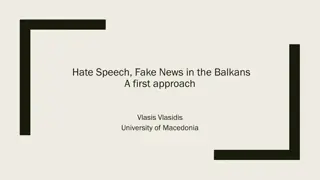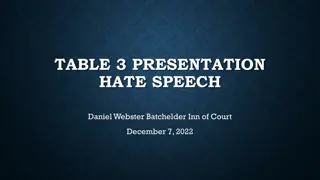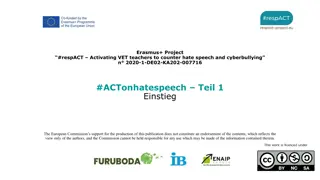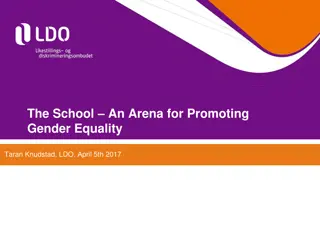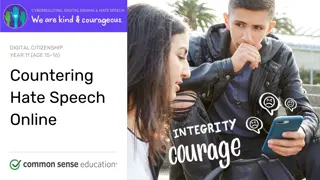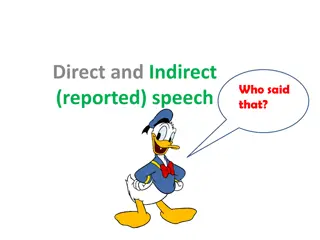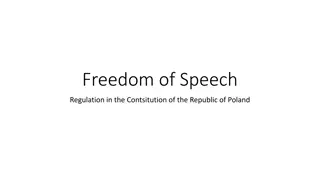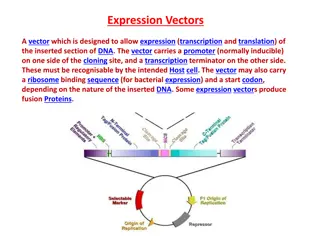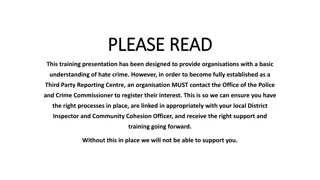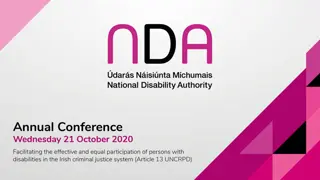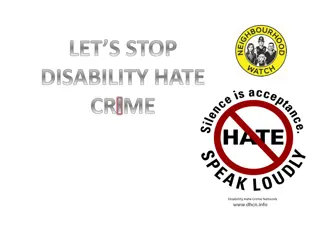Understanding Hate Speech and Incitement in Media and Freedom of Expression Law
This workshop explores the legal implications surrounding hate speech, incitement, and freedom of expression. It delves into the prohibition of propaganda for war, advocacy of hatred, and the balance between state obligations and freedom of speech. Through case law examples like the Jersild case and Brandenburg v. Ohio, the complexities of intent and the potential impact of hate speech are analyzed. The discussion also addresses the role of education in combating bias and prejudice.
Download Presentation

Please find below an Image/Link to download the presentation.
The content on the website is provided AS IS for your information and personal use only. It may not be sold, licensed, or shared on other websites without obtaining consent from the author. Download presentation by click this link. If you encounter any issues during the download, it is possible that the publisher has removed the file from their server.
E N D
Presentation Transcript
Hate speech and incitement Training workshop on media and freedom of expression law
Any propaganda for war shall be prohibited by law. Any advocacy of national, racial or religious hatred that constitutes incitement to discrimination, hostility or violence shall be prohibited by law. (Article 20, ICCPR)
Since it is a positive obligation on states to prohibit incitement to hatred, it is no surprise that states have interpreted the balance between this and freedom of expression in very different ways.
However, the Human Rights Committee has said: restrictions on expression which may fall within the scope of Article 20 must also be permissible under Article 19, paragraph 3, which lays down requirements for determining whether restrictions on expression are permissible. In other words, this question is determined using the same three-part test for when other forms of speech may be restricted.
Was hate speech intended to incite? Case law usually requires intent. Jersild case: A journalist broadcast interviews with neo- Nazi, racist youth. The intention was to expose racist views, not promote them. The punishment of a journalist for assisting in the dissemination of statements made by another person in an interview would seriously hamper the contribution of the press to discussion of matters of public interest and should not be envisaged unless there are particularly strong reasons for doing so. (ECtHR)
Must violence or hatred actually result? Incitement is an inchoate (or incomplete) offence it does not follow that violence must actually result. However, the US Supreme Court applies the strictest test of clear and present danger. A statement constitutes hate speech if it: is directed to inciting or producing imminent lawless action and is likely to incite or produce such action and is likely to incite or produce such action. (Brandenburg v. Ohio)
Ross v. Canada was a case involving a school teacher who made anti-semitic statements. The Human Rights Committee said that individuals have the: right to have an education in the public school system free from bias, prejudice and intolerance.
Is genocide denial a special case? The 1948 Genocide Convention creates a crime of incitement to genocide (echoed in the Rome Statute of the International Criminal Court). In the media trial , the International Criminal Tribunal for Rwanda convicted three journalists.
In cases involving a denial of the Nazi Holocaust, the ECtHR usually invokes Article 17 of the ECHR (prohibiting the abuse of the Convention to deny rights to others). Denying crimes against humanity is one of the most serious forms of racial defamation of Jews and of incitement to hatred of them. (Garaudy v. France) Do you agree?
Religious defamation Is it possible to defame a religion? In early cases, the ECtHR used its margin of appreciation to avoid interfering in cases of blasphemy, which were regarded as matters of public morals best decided by the country itself. Later decisions have been more protective of criticism of religion, and religious leaders and institutions.
Last word to the Human Rights Committee: Prohibitions of displays of lack of respect for a religion or other belief system, including blasphemy laws, are incompatible with the Covenant, except in the specific circumstances envisaged in article 20, paragraph 2, of the Covenant. Such prohibitions must also comply with the strict requirements of article 19, paragraph 3, as well as such articles as 2, 5, 17, 18 and 26. Thus, for instance, it would be impermissible for any such laws to discriminate in favour of or against one or certain religions or belief systems, or their adherents over another, or religious believers over non-believers. Nor would it be permissible for such prohibitions to be used to prevent or punish criticism of religious leaders or commentary on religious doctrine and tenets of faith. (General Comment 34)
Hypothetical case for discussion Your country has a law prohibiting denial of the 1915 Armenian genocide. A magazine publishes an article by a historian arguing that the killings in 1915 did not constitute genocide, and the discussion of genocide is actually used to stir anti-Turkish hatred. The author and the magazine s editor are convicted under the genocide denial law. They take their case to the regional human rights court. What arguments could each side use and what, in your opinion, should the court decide?
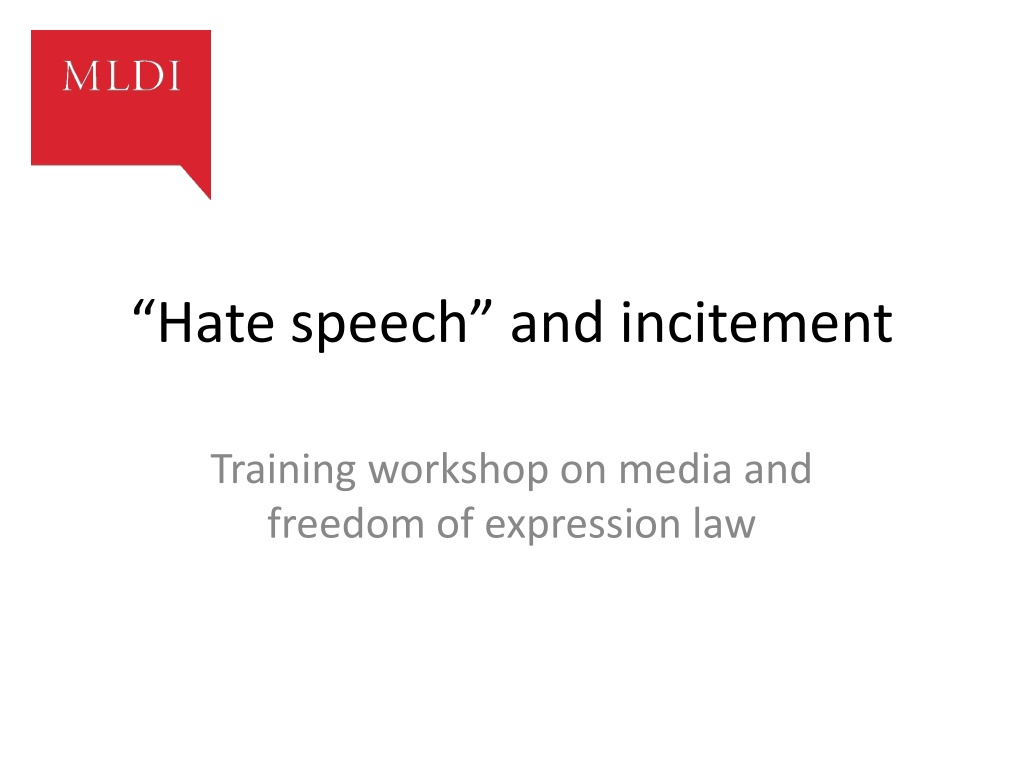

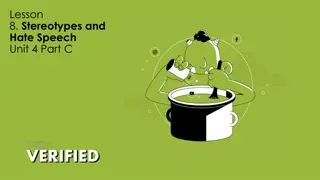
![Prevention and Combating of Hate Crimes and Hate Speech Bill [B.9B.2018]](/thumb/60513/prevention-and-combating-of-hate-crimes-and-hate-speech-bill-b-9b-2018.jpg)
